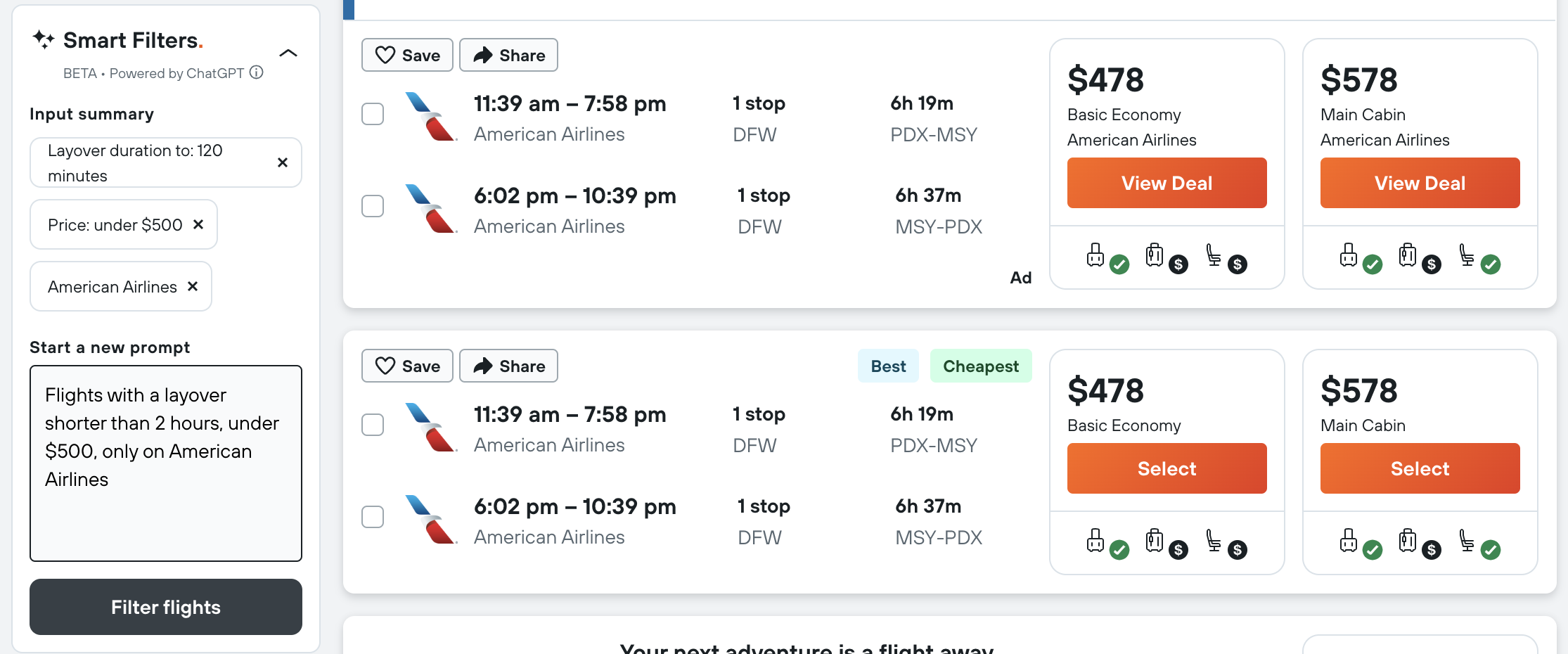AI’s Smart Approach to Filtering Data and Content
5-13-2025 Nobody likes sifting through endless pages of content just to find what they need. Whether you’re browsing an online store, searching for the right financial report, or registering for an event, a clunky filtering system can turn a simple task into a frustrating experience. That’s where AI-powered smart filters shine—surfacing what users need instantly, no learning curve required.
Nobody likes sifting through endless pages of content just to find what they need. Whether you’re browsing an online store, searching for the right financial report, or registering for an event, a clunky filtering system can turn a simple task into a frustrating experience. That’s where AI-powered smart filters shine—surfacing what users need instantly, no learning curve required.
At AVIBE, we build custom web solutions that focus on making digital interactions more intuitive and engaging. One of the ways we can do this? Smart filters.
What Makes Smart Filters Different?
Smart filters are advanced filtering systems powered by artificial intelligence and natural language processing. Unlike traditional filters that rely on manual category selection, AI-powered smart filters:
-
Understand natural language – Users can type exactly what they’re looking for, and the system interprets their intent.
-
Refine searches dynamically – Instead of making users adjust multiple filters, the system automatically narrows down results based on preferences.
-
Learn and adapt over time – The more users interact, the better the system becomes at predicting what they want.
Kayak is a great example of how smart filters can improve user experience by making complex searches simple. Instead of requiring users to manually select dozens of filters—departure times, airlines, layovers, prices, amenities—Kayak allows users to type exactly what they want in plain language.
A search like “direct flights under $500 arriving before noon” or “hotels with free parking near downtown” produces results instantly. The system interprets the request, applies the right filters behind the scenes, and delivers relevant options without extra steps.
What makes this approach effective is its combination of natural language processing and real-time filtering. Users don’t need to know how the system is structured—they just describe what they’re looking for, and the system takes care of the rest. This reduces friction, saves time, and lowers the chance of users abandoning the search out of frustration.
This kind of intuitive, responsive search experience isn’t limited to travel. The same technology can apply to any interface where users need to sort through a large number of options—whether it’s products, data, content, or events.

Bringing Kayak-Smart Filters to Every Industry
This isn’t just for travel. Any interface that requires filtering or searching—whether for products, data, or content—can benefit. Here’s how smart filters could transform key experiences:
1. Grocery Shopping, Simplified
Instead of manually sorting through grocery categories, shoppers type requests like “organic produce under $10” or “gluten-free snacks with high protein.” Smart filters instantly surface relevant products, making the experience faster and more personalized—much like how Kayak refines travel searches.
2. Find Financial Insights Faced
AI-powered filters streamline how admins access reports and insights. Rather than digging through static dashboards or complex filter menus, users can search naturally—“Q1 revenue in Japan”—and get precise results in seconds. It’s a faster, smarter way to navigate enterprise financial data.
3. Smarter Event Signups
Smart filters enhance event platforms by recommending sessions based on what attendees actually want. Typing something like “marketing workshops with networking opportunities” or “AI-focused panels for beginners” prompts real-time suggestions that match their interests—no more toggling through endless options.
Why It Matters
Natural search means users find what they need faster—with less friction and frustration. Whether it’s booking a flight, shopping online, or managing financial data, smart filters cut through the noise and create a smoother, smarter experience.
At AVIBE, we specialize in building digital solutions that make life easier. AI-powered filters are just one of the ways we help businesses create more engaging, user-friendly platforms.
Want to explore how AI-powered smart filters could improve your website?

